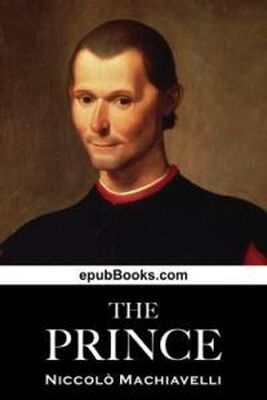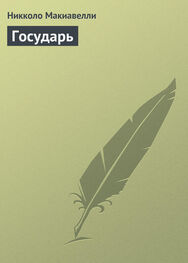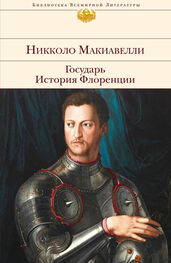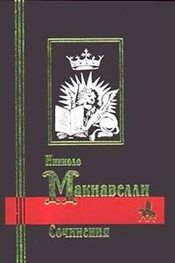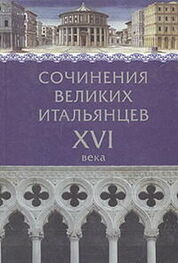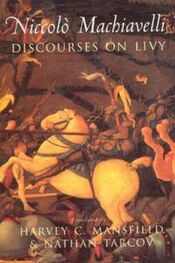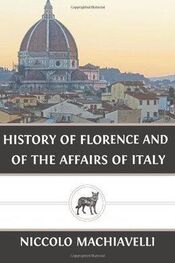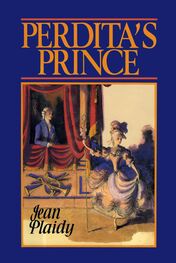This victory so greatly increased the reputation of Castruccio that Uguccione conceived some jealousy and suspicion of him, because it appeared to Uguccione that this victory had given him no increase of power, but rather than diminished it. Being of this mind, he only waited for an opportunity to give effect to it. This occurred on the death of Pier Agnolo Micheli, a man of great repute and abilities in Lucca, the murderer of whom fled to the house of Castruccio for refuge. On the sergeants of the captain going to arrest the murderer, they were driven off by Castruccio, and the murderer escaped. This affair coming to the knowledge of Uguccione, who was than at Pisa, it appeared to him a proper opportunity to punish Castruccio. He therefore sent for his son Neri, who was the governor of Lucca, and commissioned him to take Castruccio prisoner at a banquet and put him to death. Castruccio, fearing no evil, went to the governor in a friendly way, was entertained at supper, and then thrown into prison. But Neri, fearing to put him to death lest the people should be incensed, kept him alive, in order to hear further from his father concerning his intentions. Ugucionne cursed the hesitation and cowardice of his son, and at once set out from Pisa to Lucca with four hundred horsemen to finish the business in his own way; but he had not yet reached the baths when the Pisans rebelled and put his deputy to death and created Count Gaddo della Gherardesca their lord. Before Uguccione reached Lucca he heard of the occurrences at Pisa, but it did not appear wise to him to turn back, lest the Lucchese with the example of Pisa before them should close their gates against him. But the Lucchese, having heard of what had happened at Pisa, availed themselves of this opportunity to demand the liberation of Castruccio, notwithstanding that Uguccione had arrived in their city. They first began to speak of it in private circles, afterwards openly in the squares and streets; then they raised a tumult, and with arms in their hands went to Uguccione and demanded that Castruccio should be set at liberty. Uguccione, fearing that worse might happen, released him from prison. Whereupon Castruccio gathered his friends around him, and with the help of the people attacked Uguccione; who, finding he had no resource but in flight, rode away with his friends to Lombardy, to the lords of Scale, where he died in poverty.
But Castruccio from being a prisoner became almost a prince in Lucca, and he carried himself so discreetly with his friends and the people that they appointed him captain of their army for one year. Having obtained this, and wishing to gain renown in war, he planned the recovery of the many towns which had rebelled after the departure of Uguccione, and with the help of the Pisans, with whom he had concluded a treaty, he marched to Serezzana. To capture this place he constructed a fort against it, which is called to–day Zerezzanello; in the course of two months Castruccio captured the town. With the reputation gained at that siege, he rapidly seized Massa, Carrara, and Lavenza, and in a short time had overrun the whole of Lunigiana. In order to close the pass which leads from Lombardy to Lunigiana, he besieged Pontremoli and wrested it from the hands of Messer Anastagio Palavicini, who was the lord of it. After this victory he returned to Lucca, and was welcomed by the whole people. And now Castruccio, deeming it imprudent any longer to defer making himself a prince, got himself created the lord of Lucca by the help of Pazzino del Poggio, Puccinello dal Portico, Francesco Boccansacchi, and Cecco Guinigi, all of whom he had corrupted; and he was afterwards solemnly and deliberately elected prince by the people. At this time Frederick of Bavaria, the King of the Romans, came into Italy to assume the Imperial crown, and Castruccio, in order that he might make friends with him, met him at the head of five hundred horsemen. Castruccio had left as his deputy in Lucca, Pagolo Guinigi, who was held in high estimation, because of the people's love for the memory of his father. Castruccio was received in great honour by Frederick, and many privileges were conferred upon him, and he was appointed the emperor's lieutenant in Tuscany. At this time the Pisans were in great fear of Gaddo della Gherardesca, whom they had driven out of Pisa, and they had recourse for assistance to Frederick. Frederick created Castruccio the lord of Pisa, and the Pisans, in dread of the Guelph party, and particularly of the Florentines, were constrained to accept him as their lord.
Frederick, having appointed a governor in Rome to watch his Italian affairs, returned to Germany. All the Tuscan and Lombardian Ghibellines, who followed the imperial lead, had recourse to Castruccio for help and counsel, and all promised him the governorship of his country, if enabled to recover it with his assistance. Among these exiles were Matteo Guidi, Nardo Scolari, Lapo Uberti, Gerozzo Nardi, and Piero Buonaccorsi, all exiled Florentines and Ghibellines. Castruccio had the secret intention of becoming the master of all Tuscany by the aid of these men and of his own forces; and in order to gain greater weight in affairs, he entered into a league with Messer Matteo Visconti, the Prince of Milan, and organized for him the forces of his city and the country districts. As Lucca had five gates, he divided his own country districts into five parts, which he supplied with arms, and enrolled the men under captains and ensigns, so that he could quickly bring into the field twenty thousand soldiers, without those whom he could summon to his assistance from Pisa. While he surrounded himself with these forces and allies, it happened at Messer Matteo Visconti was attacked by the Guelphs of Piacenza, who had driven out the Ghibellines with the assistance of a Florentine army and the King Ruberto. Messer Matteo called upon Castruccio to invade the Florentines in their own territories, so that, being attacked at home, they should be compelled to draw their army out of Lombardy in order to defend themselves. Castruccio invaded the Valdarno, and seized Fucecchio and San Miniato, inflicting immense damage upon the country. Whereupon the Florentines recalled their army, which had scarcely reached Tuscany, when Castruccio was forced by other necessities to return to Lucca.
There resided in the city of Lucca the Poggio family, who were so powerful that they could not only elevate Castruccio, but even advance him to the dignity of prince; and it appearing to them they had not received such rewards for their services as they deserved, they incited other families to rebel and to drive Castruccio out of Lucca. They found their opportunity one morning, and arming themselves, they set upon the lieutenant whom Castruccio had left to maintain order and killed him. They endeavoured to raise the people in revolt, but Stefano di Poggio, a peaceable old man who had taken no hand in the rebellion, intervened and compelled them by his authority to lay down their arms; and he offered to be their mediator with Castruccio to obtain from him what they desired. Therefore they laid down their arms with no greater intelligence than they had taken them up. Castruccio, having heard the news of what had happened at Lucca, at once put Pagolo Guinigi in command of the army, and with a troop of cavalry set out for home. Contrary to his expectations, he found the rebellion at an end, yet he posted his men in the most advantageous places throughout the city. As it appeared to Stefano that Castruccio ought to be very much obliged to him, he sought him out, and without saying anything on his own behalf, for he did not recognize any need for doing so, he begged Castruccio to pardon the other members of his family by reason of their youth, their former friendships, and the obligations which Castruccio was under to their house. To this Castruccio graciously responded, and begged Stefano to reassure himself, declaring that it gave him more pleasure to find the tumult at an end than it had ever caused him anxiety to hear of its inception. He encouraged Stefano to bring his family to him, saying that he thanked God for having given him the opportunity of showing his clemency and liberality. Upon the word of Stefano and Castruccio they surrendered, and with Stefano were immediately thrown into prison and put to death. Meanwhile the Florentines had recovered San Miniato, whereupon it seemed advisable to Castruccio to make peace, as it did not appear to him that he was sufficiently secure at Lucca to leave him. He approached the Florentines with the proposal of a truce, which they readily entertained, for they were weary of the war, and desirous of getting rid of the expenses of it. A treaty was concluded with them for two years, by which both parties agreed to keep the conquests they had made. Castruccio thus released from this trouble, turned his attention to affairs in Lucca, and in order that he should not again be subject to the perils from which he had just escaped, he, under various pretences and reasons, first wiped out all those who by their ambition might aspire to the principality; not sparing one of them, but depriving them of country and property, and those whom he had in his hands of life also, stating that he had found by experience that none of them were to be trusted. Then for his further security he raised a fortress in Lucca with the stones of the towers of those whom he had killed or hunted out of the state.
Читать дальше